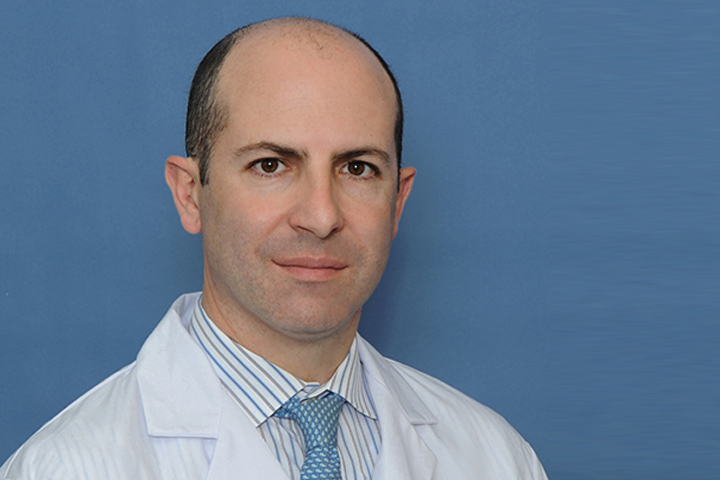“Off-the-Shelf” Vaccine Improves Overall and Average Relapse Survival

The biggest worry for pancreatic cancer patients who have completed treatment is recurrence of the disease.
But the final results of the AMPLIFY-201 study show an “off-the-shelf” vaccine dubbed ELI-002 2P may help delay or prevent recurrence among patients with pancreatic or colorectal tumors driven by KRAS mutations. The vaccine improved both average overall survival and average relapse survival, according to the study, published in August 2025 in Nature Medicine.
For patients, this vaccine could potentially offer new hope. “This is a long term follow up to the study published last year, showing more durability,” explains Zev Wainberg, M.D., M.Sc., professor of medicine at the David Geffen School of Medicine at UCLA and researcher in the UCLA Health Jonsson Comprehensive Cancer Center. “The longer we follow patients who don’t recur, the bigger deal it becomes,” Wainberg, the lead author of the study, notes.
An “off-the-shelf” immunotherapy approach has some benefits, he says. Unlike some other cancer treatments that may need to be personalized for each patient based on their specific characteristics and mutations, this vaccine is designed to be a standardized product that can stimulate the immune system to recognize and attack cancer cells in a general way, without the need for the time-consuming and complex process of creating a unique vaccine for each patient.
About the Study
KRAS mutations drive about 90 percent of pancreatic cancers. AMPLIFY-201 evaluated the safety and effectiveness of ELI-002 2P, a lymph node-directed vaccine that targets KRAS mutations. Lymph nodes are important because that is one place where immune cells congregate and where adaptive immune responses are initiated.
The study recruited 25 participants with either colon or pancreatic cancer. These patients had undergone surgery for their cancer but still showed traces of cancer DNA in their blood, an indicator of potential cancer relapse. The researchers used a diagnostic test to detect circulating tumor DNA as well as the CA19-9 marker to identify these patients who, in historical studies, had a median time of about six months until relapse. Each patient received a series of injections with ELI-002 2P, which uses a technology developed by Elicio Therapeutics that helps shuttle antigens directly to the lymph nodes, where immune responses are activated.
Study Findings
The researchers found that 84 percent of patients (21 out of 25) generated KRAS-specific T cells, including both CD4+ helper cells and CD8+ killer cells. Importantly, many of these T cells persisted over time.
In 24 percent of patients (three each pancreatic and colorectal), the biomarkers associated with the tumor were completely cleared. Patients with higher (above threshold) T cell responses had a longer relapse-free survival compared to those with lower T cell responses.
Sixty-seven percent of tested patients developed immune responses to additional tumor-associated mutations, suggesting potential for broader antitumor activity.
“Targeting KRAS has long been considered one of the difficult challenges in cancer therapy,” explains Wainberg. “This study shows that the ELI-002 2P vaccine can safely and effectively train the immune system to recognize and fight cancer-driving mutations. It offers a promising approach to generating precise and durable immune responses without the complexity or cost of fully personalized vaccines.”
Researchers have also been running another trial called AMPLIFY-7P. This phase II multisite randomized trial targets seven KRAS mutations—G12D, G12V, G12R, G12C, G12S, G12A, and G13D—in patients with high relapse risk, KRAS-driven cancers who have minimal residual disease following surgery and chemotherapy. “We already completed the randomized phase II, so now we just have to wait for the results, expected in 2026,” Wainberg says.





